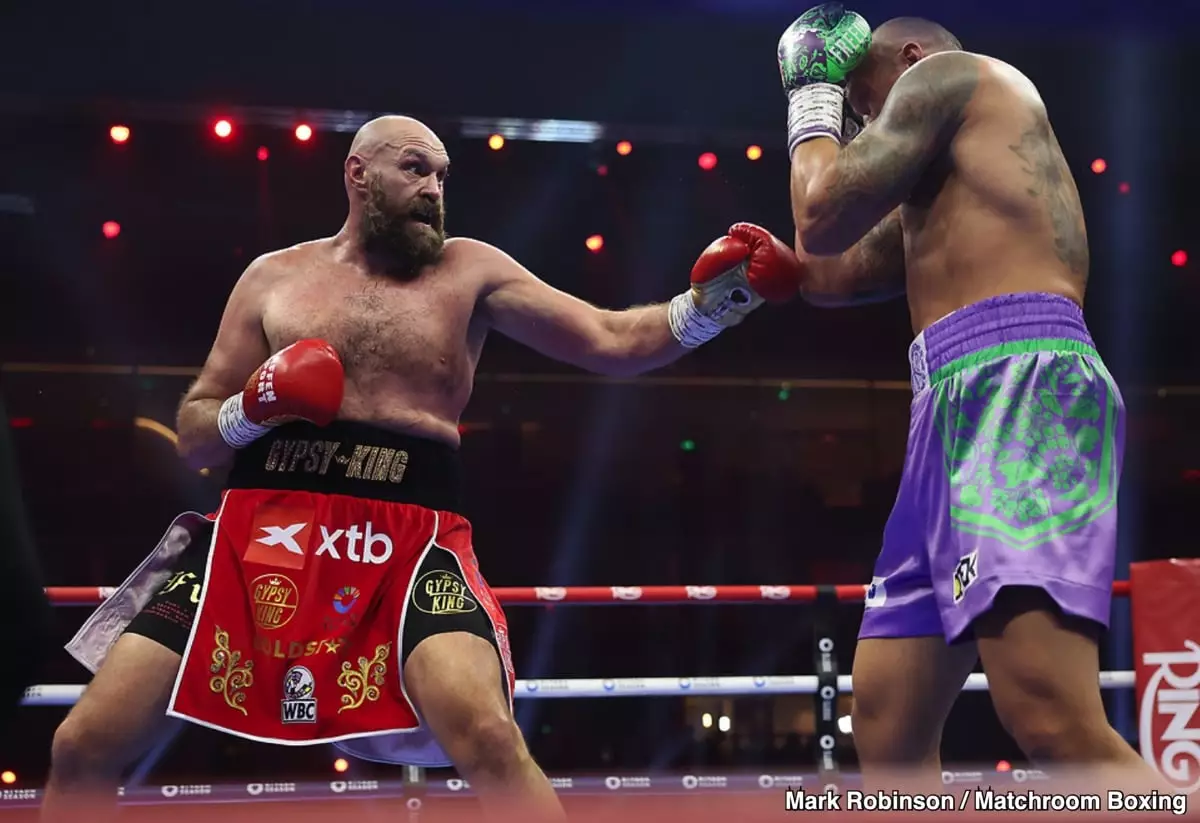The boxing world has been abuzz following Tyson Fury’s defeat to Oleksandr Usyk, where he was granted a unanimous decision loss in a bout that left fans and pundits with mixed reactions. Promoter Frank Warren has indicated that he will support Fury, regardless of whether he chooses to step away from the ring for good. However, many observers are skeptical about the Gypsy King’s retirement; he still seems highly motivated, particularly regarding a lucrative clash with Anthony Joshua. Yet, the disheartening reality of Fury’s performance suggests that future matchups, especially against someone as formidable as Joshua, may not tilt in his favor.
Despite the skepticism surrounding Fury’s recent showing, British boxing fans are still eager for a showdown between Fury and Joshua. Historically, this matchup has been one of the most anticipated in the sport. Yet, interest might not be sufficient to attract a global audience. To achieve that, promoters would need to either enhance the undercard substantially or consider lowering ticket prices. Recent defeats by both fighters have not only impacted their standings but also colored public perception of their careers, which, while impressive, lack a solid array of quality victories against peak opponents.
In conversations surrounding Fury’s potential next steps, Warren stressed that it’s essential for the boxer to act purely on personal desire rather than external pressures. The promoter expressed that if Tyson Fury opts to hang up his gloves, it won’t diminish his legacy. Warren stated, “If Tyson wants to fight, he’ll fight. If he don’t, he won’t.” This sentiment acknowledges the significant careers both Fury and Joshua have had—filled with global acclaim, accolades, and financial stability. Their legacies are built, and it becomes increasingly important to have a fulfilling personal drive rather than simply a desire for a paycheck.
Fury’s recent loss to Usyk, whose strategic superiority outshone Fury’s efforts throughout the fight, serves as a crucial link in the evaluation of Fury’s career trajectory. Warren’s belief that the judges were unjustly critical of Fury seems misplaced in the broader context. Evidence from the bout demonstrates that Usyk consistently outperformed Fury, thereby reinforcing the narrative that Tyson may not be the fighter he once was. The final score of 116-112 across all three scorecards reflects a mismatch more than an unfortunate judgment error.
Analyzing both Fury’s and Joshua’s resumes reveals a significant intersection where their careers were once lauded for their quality matchups. Yet, both fighters have begun to show vulnerabilities—Fury being outclassed by Usyk and Joshua facing harsh criticism after previous setbacks against smaller opponents. As Warren indicates, retirement might beckon for both, given their storied successes and significant financial backing. Ultimately, the question remains: will Fury find the motivation to reclaim his throne, or will he exit the sport he has dominated? The answer will shape the future of heavyweight boxing and its legacy.

